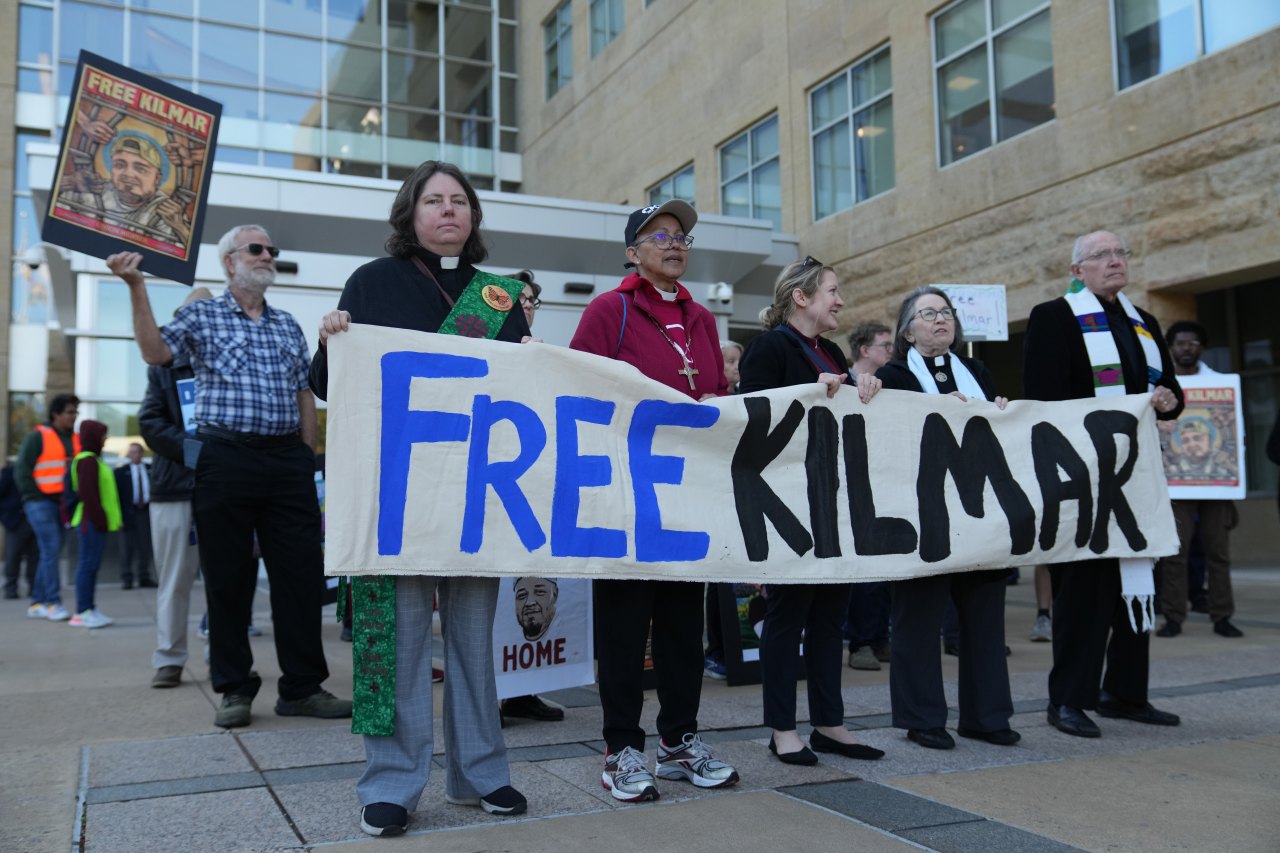GREENBELT, Md. (AP) — The Trump administration is once again pushing to deport Kilmar Abrego Garcia, a Maryland man who was mistakenly sent to El Salvador, despite rejection from three African countries they approached, a judge heard during testimony Friday.
Abrego Garcia is challenging efforts to deport him to a third country after the government admitted that a previous order prevents his deportation to his home country of El Salvador. U.S. Immigration and Customs Enforcement (ICE) recently announced plans to deport him to the southern African country of Eswatini.
The case has come to symbolize the bitter partisan struggle over former President Donald Trump’s sweeping immigration policies and mass deportation agenda.
U.S. District Judge Paula Xinis of Maryland said Friday she will decide soon whether Abrego Garcia should remain in custody or be released from immigration detention while his legal challenge proceeds. This announcement came following a hearing she ordered, requesting government officials explain the steps they have taken to remove Abrego Garcia to another country.
An ICE official told the judge during Friday’s hearing that the government continues to engage with officials in Eswatini about accepting Abrego Garcia, despite the country rejecting the idea this week. John Schultz, a deputy assistant director who oversees removals for ICE, stated that discussions are still ongoing with Ghana as well. However, Ghana’s foreign minister, Sam Okudzeto Ablakwa, posted on social media that the nation will not accept Abrego Garcia. Uganda also declined to accept him, Schultz said.
Despite these setbacks, Schultz maintained that Abrego Garcia could be removed within 72 hours if the judge allows it, once the administration receives approval from a third country. “We could quickly operationalize the removal,” Schultz said.
Abrego Garcia’s attorneys have accused the Republican administration of using the immigration system illegally to punish him after the embarrassment caused by his mistaken deportation.
“This game that they’re effectively playing of naming one country after another shows the government’s real goal is to be improperly punitive,” said Andrew Rossman, one of Abrego Garcia’s lawyers.
Rossman also told the judge that the government could immediately send Abrego Garcia to Costa Rica—a country he has already expressed willingness to go to—if the administration were sincere.
“Are you open to that?” the judge asked Justice Department attorney Drew Ensign.
“I’m not aware of any conversations of that nature,” Ensign replied.
Judge Xinis said it should not take long for the government to determine if it would agree to send Abrego Garcia to Costa Rica, noting there is no evidence the country would say no. “This is just not that hard,” she said.
Meanwhile, attorneys in criminal court in Tennessee have made similar claims about retribution concerning human smuggling charges brought against Abrego Garcia in June, on the same day he was returned to the U.S. from El Salvador.
The Tennessee judge has concluded that Abrego Garcia’s prosecution may be an illegal retaliation after he successfully sued the Trump administration over his deportation.
The smuggling charges stem from a 2022 traffic stop in Tennessee. At that time, Abrego Garcia was not charged, and the investigation only began earlier this year after his wife sued over his deportation.
At a Friday hearing in Nashville, U.S. District Judge Waverly Crenshaw said he will hear evidence on the motion to dismiss the charges on Nov. 3.
In addition, defense attorneys indicated their intention to file a motion to remove statements unrelated to the smuggling charges from the indictment. Attorney Jenna Dabbs cited allegations that her client is a member of the MS-13 gang as an example of extraneous accusations not relevant to the actual charges.
Trump administration officials have waged a relentless public relations campaign against Abrego Garcia, repeatedly labeling him as a member of MS-13 and other designations, despite the fact that he has not been convicted of any crimes.
___
Loller reported from Nashville, Tenn.
https://fox5sandiego.com/news/politics/ap-politics/ap-federal-judges-in-2-states-are-considering-challenges-to-the-governments-treatment-of-abrego-garcia/
